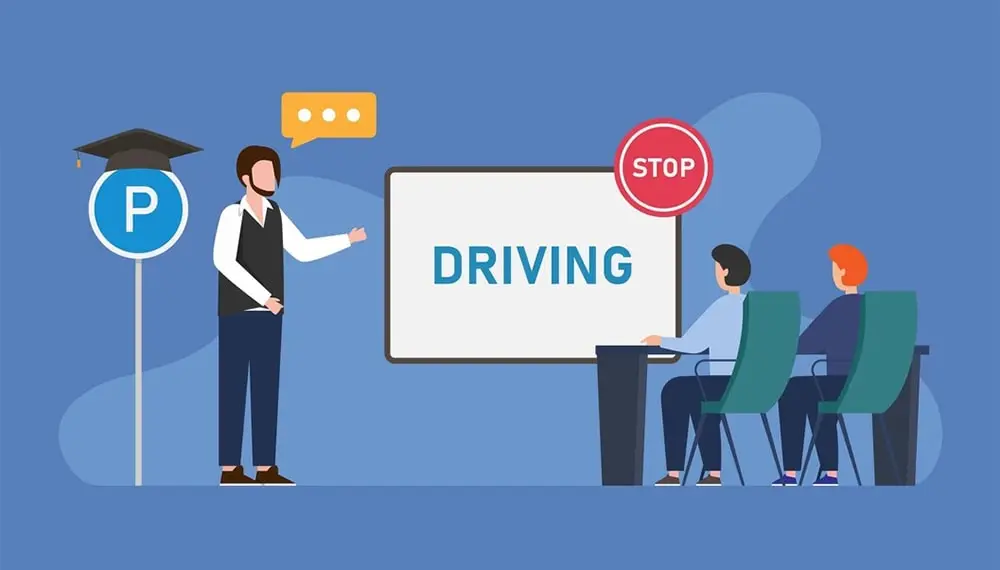Soft Skills Training For Your Workforce
Rohit Kumar
01 Apr, 2024

In today's rapidly evolving business landscape, the spotlight on soft skills shines brighter than ever. Gone are the days when technical prowess alone could steer the ship of professional success. Now, the ability to navigate the complex human elements of the workplace stands equally, if not more, vital. This shift towards a more collaborative and adaptive business environment underscores the indispensable role of soft skills. Effective communication, leadership, and emotional intelligence have become critical to teamwork, customer satisfaction, and business success.
The growing recognition of these skills marks a pivotal change in how organizations approach employee development. It reflects a broader understanding that the fabric of a successful business is woven from the threads of technical abilities and the strands of interpersonal and leadership skills. This article underscores the significance of soft skills in the modern workplace, offering insights into identifying skill gaps, critical soft skills for enhancing employee performance, and strategies for implementing effective training programs. As we delve into the value of soft skills in today's business environment, it becomes clear that fostering these abilities is necessary for organizations aiming to thrive in the complexity of the 21st century.
The business world is transforming. In this new era, collaborating, adapting, and leading with empathy is as critical as mastering technical skills. The value of soft skills has surged to the forefront, becoming a key differentiator in the competitive landscape. This shift responds to the complex challenges and opportunities of globalization, technological advancements, and changing workforce dynamics.
The Value of Soft Skills
Soft skills, encompassing communication, teamwork, leadership, and emotional intelligence, are now recognized as essential components of a well-rounded professional. They enable individuals to navigate workplace relationships' nuances, lead confidently, and foster an environment of innovation and resilience. In a world where automation and artificial intelligence are on the rise, these human-centric skills ensure that companies can maintain a competitive edge by leveraging the unique insights and creativity that only people can provide.
Moreover, the emphasis on soft skills reflects a deeper understanding of what drives business success. Studies and surveys consistently show that companies with a focus on developing these competencies see improvements in productivity, customer satisfaction, and employee engagement. They are better equipped to handle the complexities of modern business challenges, from managing diverse teams across different geographies to innovating in response to rapid market changes.
In essence, the value of soft skills in today's business environment cannot be overstated. They are the glue that holds teams together, the spark that ignites innovation, and the compass that guides ethical and effective leadership. As we move forward, organizations' ability to recognize, cultivate, and harness these skills will play a transformative role in shaping the future of work.
Identifying and Assessing Soft Skills Gaps
In the quest to cultivate a workforce brimming with the prowess to tackle today’s business challenges, identifying and assessing soft skills gaps emerges as a critical first step. This process is the cornerstone for any meaningful development of soft skills. It begins with a thorough evaluation, a mirror held up to the organization, revealing the contours of its strengths and the shadows of its needs.
The journey to uncover these gaps often starts with a simple yet powerful tool: The skills assessment. When wielded with care, this instrument invites employees to embark on a journey of self-reflection. It asks them to ponder their interactions, challenges, and triumphs. Through this introspection, a map of needs begins to take shape, charting a course toward growth and improvement.
Yet, the insights of managers and leaders add another layer of depth to this exploration. Their vantage point allows them to see the gaps that might elude others. They observe the daily dance of teamwork, communication, and problem-solving, noting where the steps and rhythm falter. Their input, combined with employees' self-assessments, paints a comprehensive picture of the soft skills landscape within the organization.
With this knowledge in hand, the path forward becomes clear. It points to the specific areas where training can have the most profound impact, where the seeds of development can find fertile ground. This targeted approach ensures that the efforts to bridge soft skills gaps are efficient and effective, tailored to the organization's and its people's unique needs.
Thus, identifying and assessing soft skills gaps is a call to action to embark on a strategic and personal development journey. It lays the foundation for a transformative training program, equipping employees with the skills they need to navigate the complexities of the modern business environment.
Critical Soft Skills
In the tapestry of the modern workplace, specific soft skills emerge as threads more critical than others, weaving through the fabric of daily interactions and decisions to enhance employee performance and drive organizational success. These skills, while varied, share a common trait: they empower employees to navigate the complexities of their roles with grace, adaptability, and a keen sense of collaboration.
Communication stands at the forefront of these essential skills. The ability to articulate ideas clearly, listen attentively, and engage in meaningful dialogue facilitates the smooth exchange of information and building trust and understanding within teams. It is the bridge that connects diverse minds, allowing them to converge on common goals and work in harmony.
Leadership extends beyond the confines of title or position, manifesting as the capacity to inspire, motivate, and guide others toward a shared vision. It involves the art of delegation, empathy, and the commitment to personal and professional growth. Leadership cultivates an environment where innovation flourishes, and challenges are met with resilience.
Problem-solving and critical thinking are twin pillars that support the ability to confront challenges with a strategic mindset. Employees adept in these skills can dissect complex issues, identify viable solutions, and implement them with precision. They are the architects of progress, turning obstacles into opportunities for advancement.
Adaptability and flexibility have become indispensable in an era marked by rapid change. Employees who can pivot quickly, embracing new ideas and adjusting to shifting circumstances, are invaluable assets. They help steer the organization through turbulent waters, ensuring it remains agile and aligned with the ever-changing business landscape.
These critical soft skills form the foundation for enhancing employee performance and achieving organizational goals. They are essential for success in today’s dynamic and interconnected world. Training programs that nurture these skills invest in the most valuable resource of all: their people.
Deploying Effective Soft Skills Training
Implementing effective soft skills training programs requires a thoughtful approach that considers the diverse needs and learning styles of employees. The goal is to create an environment that promotes skill development and encourages applying these skills in everyday work scenarios. Here are strategies to ensure the successful rollout of these programs.
-
Start with a Clear Framework: Define the objectives of the training program. What specific soft skills are you aiming to develop? How do these skills align with the broader goals of the organization? A clear framework provides direction and purpose, serving as a trainer and participant roadmap.
-
Choose the Right Delivery Method: Today's workforce is diverse, and so is how people learn best. Some may thrive in interactive workshops, while others prefer online courses they can take at their own pace. Consider a blended learning approach that combines face-to-face sessions with digital learning. This flexibility can increase engagement and participation.
-
Engage with Real-World Scenarios: Theoretical knowledge of soft skills is valuable, but practical application cements learning. Incorporate role-playing exercises, simulations, and case studies that reflect real-world challenges employees might face. This hands-on approach helps participants see the relevance of soft skills to their daily tasks and responsibilities.
-
Foster a Supportive Learning Environment: Encourage an atmosphere of openness and mutual support where employees feel comfortable practicing new skills without fear of judgment. Peer feedback, mentoring, and coaching can complement formal training methods, providing participants with a well-rounded learning experience.
-
Measure and Adapt: Implement mechanisms to measure the effectiveness of the training program. Surveys, feedback forms, and performance metrics can provide insights into how well the program meets its objectives. Be prepared to adapt the training based on this feedback, ensuring it remains relevant and impactful.
-
Leadership Buy-In and Role Modeling: Leadership support is crucial for the success of any training program. Leaders should endorse the program and participate in it. By demonstrating their commitment to developing soft skills, leaders can inspire their teams and reinforce the value of continuous learning.
Implementing an effective soft skills training program is an investment in the organization's future. By carefully planning, executing, and refining these programs, organizations can equip people with the skills needed to navigate the complexities of the modern workplace, fostering a culture of growth, collaboration, and resilience.
In modern business, the emphasis on soft skills has never been more pronounced. As we navigate through an era where adaptability, communication, and emotional intelligence become the hallmarks of successful organizations, the need for comprehensive soft skills training programs stands out as a clear imperative. This article has traversed the significance of these skills, the methods to identify gaps, the essential skills to focus on, and strategies for effectively implementing training programs. The journey underscores a fundamental truth: Cultivating soft skills is a critical element that shapes the core of organizational success.
The value of investing in soft skills training extends beyond individual achievement. It fosters a culture of empathy, resilience, and collaboration, creating a productive, nurturing, and innovative workplace. As companies look to the future, the focus on developing these skills will undoubtedly play a pivotal role in navigating the challenges and opportunities.
In conclusion, prioritizing developing soft skills is a necessary evolution in response to the changing business environment. By embracing this shift, organizations can unlock the full potential of their workforce, driving growth, satisfaction, and success in an increasingly complex world. The journey toward excellence in soft skills is both a challenge and an opportunity that promises to redefine the landscape of professional development and organizational achievement.
In the journey toward enhancing workplace soft skills, Core Competency emerges as a pivotal ally for organizations aiming to nourish a continuous learning and development culture. With a suite of tailored solutions, including Learning Management Systems and bespoke eLearning content, Core Competency equips organizations with the tools necessary to bridge soft skills gaps effectively. Our expertise in delivering engaging, interactive training programs ensures your workforce is well-prepared to navigate the complexities of the modern business environment. Discover how Core Competency can transform your workforce's soft skills training initiatives at corecompetency.net




